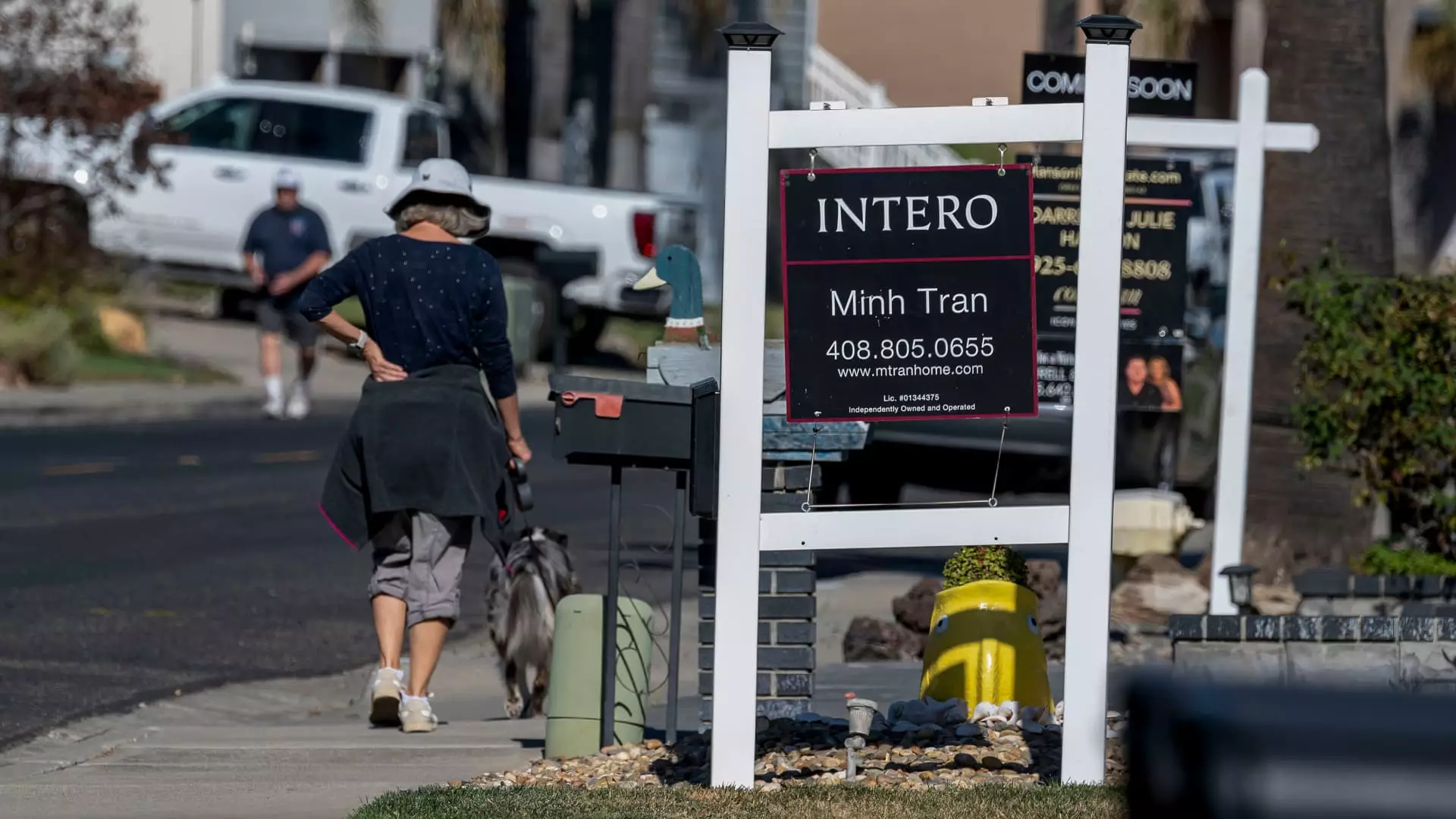In the past week, mortgage rates have seen an upward trend for the fourth consecutive week, resulting in a notable decline in mortgage demand. The Mortgage Bankers Association reported a 3.7% decrease in total mortgage application volume, adjusted for seasonal factors and the recent New Year holiday. This persistent rise in rates underscores growing concerns among potential homebuyers, reflective of an overall tightening in the housing market.
The Current State of Mortgage Applications
As the average contract interest rate for 30-year fixed mortgages with conforming loan balances climbed to 6.99%, a slight increase from the previous week’s rate of 6.97%, the impact on consumer behavior became evident. With points decreasing marginally from 0.72 to 0.68, the costs associated with obtaining a mortgage are still considerable for those looking to enter the housing market. Although refinancing activity saw a slight uptick of 2% week-over-week, it has plunged by 6% compared to last year’s figures, indicating a market far less favorable for homeowners seeking to lower their existing mortgage payments.
A Deeper Dive into Purchase Applications
Further analyzing the components of mortgage demand, applications aimed at purchasing a home saw a worrying decline of 7% week-over-week and are down by 15% compared to the same period last year. The housing inventory has improved, with more homes available for sale than a year prior; however, the dual factors of elevated mortgage rates and increased home prices have created a barrier, preventing many prospective buyers from making commitments. Joel Kan, the MBA’s vice president and deputy chief economist, highlighted the situation, noting that applications for both conventional and government loans have reached the slowest pace since February 2024.
Despite an overall movement of mortgage rates higher, the refinancing segment displayed an unexpected increase, mainly propelled by VA mortgage refinances that exhibited considerable weekly fluctuations. This anomaly can be attributed to the typically low volume in refinance applications, which skews percentage increases to look more significant than what they represent in a broader context. Homeowners remain cautious amid fluctuating rates, and many may feel apprehensive about the timing of entering the refinancing market as economic uncertainties linger.
As the new week commenced, indications from Mortgage News Daily revealed that the 30-year fixed mortgage rate had further increased, reaching 7.14%. This relentless rise suggests a challenging environment for mortgage seekers moving into the new year. Economic data will play a crucial role in shaping future rates, either reinforcing the upward trend or prompting a shift toward stabilization. With buyers continuing to adopt a wait-and-see approach, the housing market’s vitality depends significantly on how these economic factors unfold in the coming months. As it stands, the potential for recovery remains fragile, underscoring a critical period in both mortgage and housing markets.

